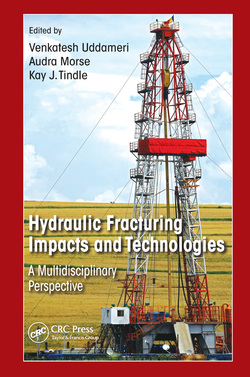Hydraulic Fracturing Impacts and Technologies: A Multidisciplinary Perspective serves as an introduction to hydraulic fracturing and provides balanced coverage of its benefits and potential negative effects. Presenting a holistic assessment of hydraulic fracturing and its environmental impacts, this book chronicles the history and development of unconventional oil and gas production and describes the risks associated with the use of these technologies. More specifically, it addresses hydraulic fracturing?s use and dependence on large amounts of water as a fracturing medium. It examines the limits of reusing flowback and produced water, explores cost-effective ways to clean or effectively dispose of water used in fracturing, and provides suggestions for the efficient use, discovery, and recycle potential of non-potable water. Utilizing a team of experts from industry and academia, the text provides readers with a multiple lens approach?incorporating various perspectives and solutions surrounding this evolving technology.
This book:
Leads with an overview of hydraulic fracturing operations and technologies
Considers a variety of legal issues associated with hydraulic fracturing
Summarizes human health and environmental risks associated with hydraulic fracturing operations
Discusses the analytes chosen by researchers as possible indicators of groundwater contamination from unconventional drilling processes
Presents strategies for reducing the freshwater footprint of hydraulic fracturing
Discusses water treatment technologies and solutions to recycle and reuse produced waters, and more
Hydraulic Fracturing Impacts and Technologies: A Multidisciplinary Perspective brings together experts from disciplines that include petroleum, civil, and environmental engineering; environmental sciences chemistry toxicology; law; media; and communications; and provides readers with a multidisciplinary outlook and unbiased, scientifically credible solutions to issues surrounding hydraulic fracturing operations.











